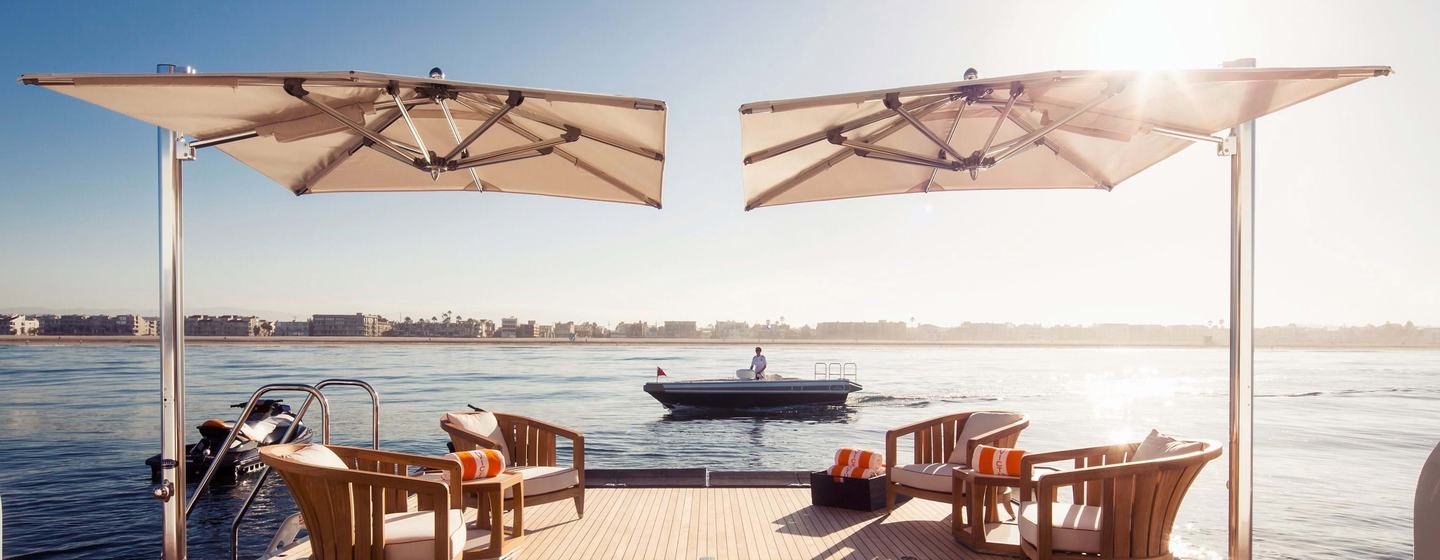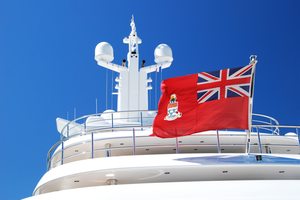Owning one of the world’s biggest yachts is a complex undertaking, especially when it involves international travel and commercial use. Fortunately, there are experts available to streamline the process, ensuring a smooth and low-risk experience.
In this series of articles, we unravel the basics of superyacht law for owners. This article specifically looks into ownership, risks, and liabilities.
Superyacht Corporate Ownership
Superyacht corporate ownership is a strategy gaining traction in the world of luxury yachting. It offers a blend of financial advantages, privacy, and operational flexibility, making it an appealing option for those seeking to enter the realm of superyacht ownership.
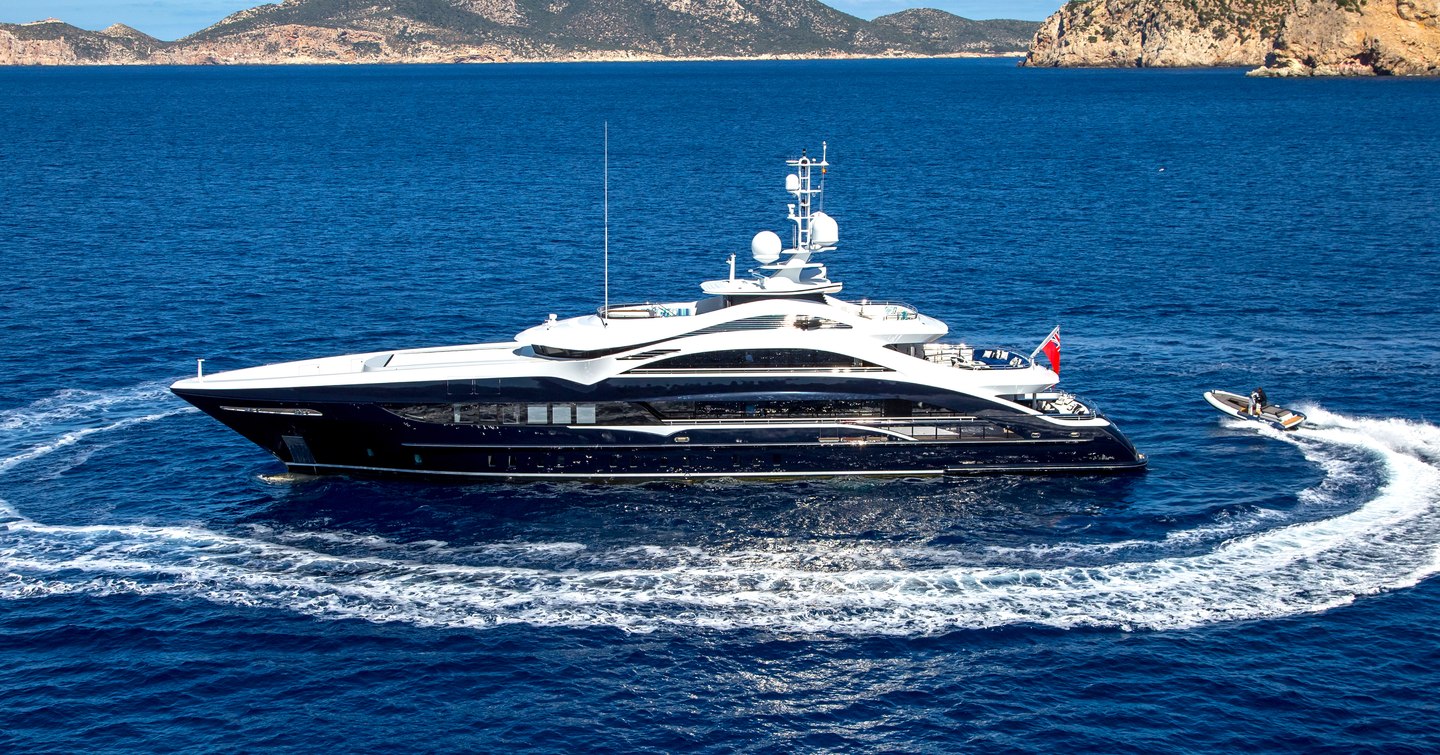
While it's important to note that the specific benefits may vary depending on the jurisdiction and the chosen corporate structure, superyacht corporate ownership can offer:
A layer of protection for personal assets, shielding them from potential liabilities related to the yacht.
Potential tax benefits and deductions, especially for those who operate their yachts for charter or business purposes.
A higher level of privacy by concealing the identity of the actual owner, which can be appealing to high-profile individuals.
Efficient management of the yacht, including crew employment and charter operations, while complying with local and international regulations.
Simplifying the process of passing on the yacht to heirs or beneficiaries, potentially reducing estate taxes and legal complexities.
Reduced personal liability of owners in the event of accidents or disputes involving the yacht.


Income through charter operations, providing a return on investment and potentially reducing the cost of ownership.
Professional yacht management services, ensuring that the yacht is well-maintained and operating efficiently.
Potentially a higher resale value as yachts owned by a corporation can offer a cleaner and more organized ownership structure.

Corporate ownership provides owners with the flexibility to structure their ownership in ways that align with their unique needs and circumstances. This approach considers:
Yacht operational regions:
It allows owners to adapt their yacht's structure to the regions where it operates, accommodating diverse international regulations and requirements.
Flag state:
The choice of the flag state for yacht registration can have various legal and tax implications, and corporate ownership provides the flexibility to select the most advantageous option.
Private and charter use:
Whether the yacht is primarily for private use or intended for charter has significant tax and legal implications.
Owner (UBO) nationality:
The nationality of the UBO can also influence legal and tax considerations.
Specialist fiscal advice should be obtained before entering into any ownership structure."
Personal Exposure
It is often found that the primary appeal of corporate ownership lies in safeguarding the ultimate beneficial owner (UBO) from personal exposure to potential liabilities stemming from the yacht's operation.
This protection extends to the UBO, with exceptions only in cases of their wilful misconduct. In essence, the corporate structure acts as a legal shield, insulating personal assets and financial well-being from the operational risks and liabilities associated with yacht ownership.
The risk of 'sistership arrest' is an important consideration when a single UBO owns multiple yachts. To mitigate this risk, it is wise to establish separate entities for each yacht, even if the UBO remains consistent.
This strategy helps avoid potential legal claims affecting multiple vessels under common ownership. By keeping each yacht in a distinct entity, you maintain a level of legal separation, reducing the risk of liabilities from one yacht adversely affecting the others. The continuity of the UBO across these entities is generally acceptable and doesn't pose a problem, as long as the legal and financial structures are well-maintained to protect each yacht individually.
For more on 'sistership arrest' see the related section at the end of this article.
Corporate Ownership and Privacy
Privacy considerations are pivotal, as the level of disclosure and transparency associated with ultimate beneficial owner (UBO) information can differ significantly among corporate registers.
Superyacht corporate ownership can bring notable privacy benefits. Firstly, it can shield the UBO from public exposure. By concealing the UBO's identity behind the corporate entity, their personal information remains confidential, which is especially appealing to high-profile individuals who value their privacy.
This discretion may extend to the yacht's operations, ownership details, and financial transactions, ensuring a level of anonymity that would be challenging to achieve with direct personal ownership.
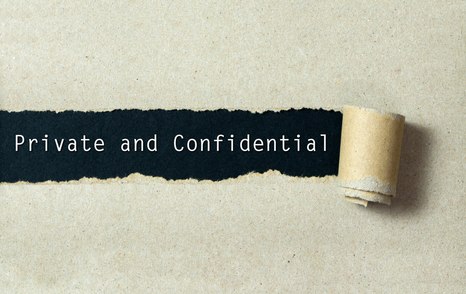
Secondly, corporate ownership will allow for a degree of operational privacy. The management and crewing of the yacht can be handled through the corporate entity, reducing the need for direct UBO involvement in administrative and operational matters. This separation provides a layer of privacy and convenience, as the UBO can enjoy their yachting experience without the burden of day-to-day administrative responsibilities.
Superyacht corporate ownership not only safeguards the UBO's personal information but also streamlines the operational aspects of ownership.

Ownership Risk and Liability
Yacht ownership and operation entail various risks for the owner, including potential damage to the yacht and liability toward third parties like crew, guests, and other vessels. The extent of an owner's exposure to risk and potential claims is significant. Even when structured as a corporate entity, shielding the ultimate beneficial owner (UBO) from personal liability, the entity remains an attractive target due to the valuable asset it holds.

Ownership Risk
As we now know, yacht corporate ownership can help mitigate certain risks by providing a level of separation between the individual owner(s) and the yacht. The primary ownership risks in this context include financial risk and asset protection:
Financial Risk:
Yacht corporate ownership involves forming a legal entity, such as a corporation or an LLC, to own and operate a yacht. The corporation or LLC assumes the financial responsibilities of ownership. This can help protect personal assets in case of debts or liabilities related to the yacht.
Asset Protection:
Corporate ownership can shield personal assets from potential claims arising from accidents or incidents involving the yacht. This separation can limit personal liability.

Liability
The liability in yacht corporate ownership typically pertains to legal obligations and responsibilities:
Limited Liability:
One of the main advantages is limited liability. Owners' personal assets are generally protected from the business's debts and liabilities. If the yacht is involved in an accident or faces legal issues, the corporation or LLC is primarily responsible.

Corporate Veil
To maintain limited liability, it's important to follow corporate formalities and keep personal and business finances separate. Failure to do so may pierce the corporate veil, potentially exposing personal assets.
Recommended Insurance
For a corporate ownership entity to cover a yacht properly and manage associated risks, several types of insurance are typically recommended.
The specific insurance needs can vary based on the yacht's size, usage, location, and regulations. Work with an experienced marine insurance broker to tailor a policy that meets the yacht's unique requirements and minimizes risks effectively.
- Hull insurance covers damage or loss to the yacht itself.
- Protection and Indemnity (P&I) Insurance covers third-party liabilities, such as injury to crew or guests, damage to other vessels, or environmental damage caused by the yacht.
- Crew Insurance may include medical, disability, and life insurance.
- Charter Liability Insurance covers liabilities arising from charter activities, like accidents involving charter guests.
- Additional Liability Insurance may be necessary to protect against lawsuits and claims.
- Environmental Liability Insurance covers expenses related to oil spills, pollution, and environmental damage.
- Legal Expenses Insurance helps cover legal costs in case of disputes or legal actions related to the yacht's operation.
- Property Insurance for personal belongings, equipment, and other assets on the yacht.
- Crew Medical Insurance to cover medical expenses and repatriation for the crew in case of illness or injury.
- Kidnap and Ransom Insurance if operating in areas with higher security risks.
Claims Against the Yacht
When a yacht is owned by a corporate entity, the structure offers a degree of protection for the ultimate beneficial owner (UBO) by limiting personal liability. However, claims against a yacht, even in corporate ownership, remain a significant concern.
Potential claims can arise from various sources, including accidents, injuries to crew or guests, damage to other vessels, environmental impacts, or contractual disputes. While the UBO's personal assets may be shielded, the corporate entity itself becomes a prime target, as it holds a valuable asset—the yacht.

Claims against a yacht can sometimes take a unique and powerful form: direct action against the yacht itself. This possibility varies by maritime jurisdiction but generally encompasses disputes related to ownership, unpaid crew wages, personal injuries, damage from yacht use, and claims for essential goods or services.
This recourse allows aggrieved parties to seize or "arrest" the yacht to enforce their claims. The court's ultimate authority can involve selling the yacht to settle the owed amount. While this practice is often used as a leverage tactic, its potential impact should not be underestimated.
It's essential for yacht owners, particularly those in corporate ownership, to be aware of this aspect of maritime law. Even if the corporate structure shields the UBO from personal liability, the yacht itself can become the target in certain disputes. This underscores the importance of robust insurance coverage and proactive risk management, as well as compliance with relevant maritime regulations.
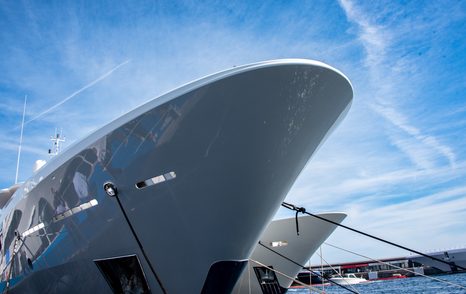
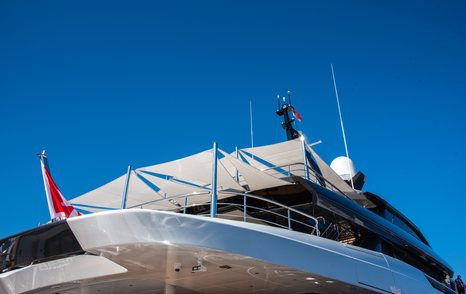
Proactive risk management is essential. Ensuring the yacht complies with safety regulations, maintains proper documentation, and implements best practices in crew training and vessel maintenance can reduce the likelihood of claims.
In the event of a claim, a prompt and well-organized response is essential. This may involve cooperating with insurance providers, legal counsel, and investigators to determine liability and take necessary actions.
Sistership Arrest
When the owner of a yacht is directly liable for a claim, the legal concept of 'sistership arrest' comes into play. This means that the right of arrest can be applied not only to the yacht in question but also to any other yachts under the same legal and registered ownership. This legal mechanism allows claimants to target all yachts owned by the same entity, which could be a significant concern for ultimate beneficial owners (UBOs) who own multiple vessels.
To mitigate the risk of sistership arrests, UBOs who own more than one yacht can take steps to ensure that each yacht is held under separate ownership. By structuring ownership in this manner, a claim against one yacht would not automatically extend to the owner's other vessels. This strategy can provide a level of protection for the owner's yacht portfolio.
It's important to navigate the legal and regulatory requirements carefully when structuring yacht ownership in this way to avoid potential complications. Legal and financial advice from experts experienced in maritime law and yacht ownership is crucial to ensure compliance and protection while minimizing potential risks related to sistership arrests.
